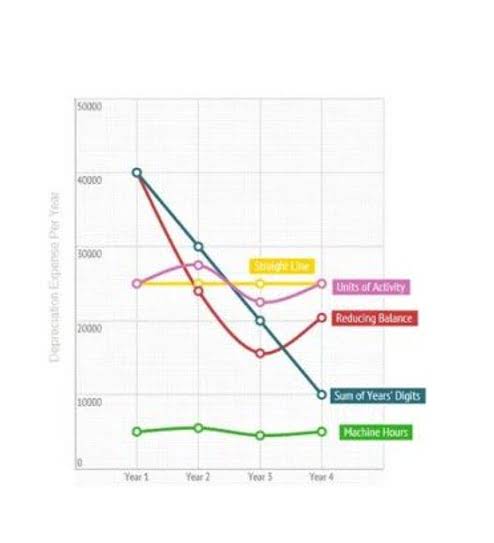
Factoring with altLINE gets you the working capital you need to keep growing your business. The money advanced against these invoices will be repaid by your customers. Small business factoring offers more certainty because as long as your invoice factoring invoices are approved, you will get cash advances on them. Invoice factoring is typically better for companies with few fixed assets because the financing company looks at your customers instead of your fixed assets. If you work with an established customer base, factoring companies will give you enough working capital when banks cannot. Overdue invoices and late payments can create extra stress when your cash reserves are low.
Invoice Factoring Rates
You can use the money to purchase new equipment, pay your bills, or for payroll. The alternative is to chase down the customer and pay the invoice, deferring all other activities while the money is being collected. Running out of cash is not an option for any business to survive, and raising capital for a small business is difficult and time-consuming. You can get additional capital for your business in small amounts by using small business factoring, giving you quick access to cash without sacrificing equity or ownership. Businesses should focus on the factoring company’s reputation, comprehend the fee structure, and evaluate its industry expertise to ensure a beneficial partnership. By converting unpaid invoices into immediate cash, seasonal businesses can cover upfront costs during off-peak periods.

Factoring Is Not a Loan, So No Debt Is Incurred

With non-recourse factoring, the factor takes on the obligation of absorbing any accounts receivables that remain unpaid, so the client is at no risk. If your customers are established businesses with strong credit, factoring companies are more likely to approve them, making it more likely for you to get invoices paid quickly. In general, invoice factoring is right for your business if you suffer from cash shortfall due to invoices’ slow payments . Yes, there are factoring companies that specialize in working with startups. For example, altLINE provides factoring funds for startup staffing agencies, offshoot startups, new distributors and wholesalers and nonprofit startups. To qualify for startup factoring, you will likely need to provide a list of your existing and potential customers so the factoring company can review their credit profiles.
- While both invoice factoring and invoice financing can cover cash flow gaps, it’s important to understand the difference between the two before you decide which one will work for your business.
- Factor rates vary by invoice factoring companies but generally range from 0.50% to 5% per month.
- Factoring, on the other hand, usually involves the third-party reaching out to customers — potentially providing a clue that you’re having cash flow problems.
- Non-recourse factoring shifts the risk to the factoring company, leading to higher fees due to increased liability.
- There is no cost to submit a loan request, get matched with lenders and receive conditional loan offers or quotes.
Step 1: Send Your Invoices
Once you collect your money from your client, you must pay the lender back the amount loaned along with fees. If you only need funds to clear a temporary financial hurdle, spot factoring may be the right choice for you. With spot factoring companies, you get to choose the invoices that get factored, and you aren’t locked into a contract. The rates and fees you will pay for A/R financing varies by the lender you’re matched with.

The trade-off is that factoring is typically more expensive than bank loans. Invoice factoring is a financing method that allows you to convert your unpaid invoices into immediate working capital. Rather than waiting on your clients to pay, you sell your outstanding invoices to a factoring company in exchange for a cash advance—typically up to 95% of the invoice value. Recourse factoring offers lower rates but requires businesses to repurchase invoices when the customer doesn’t pay. Non-recourse factoring shifts the risk to the factoring company, leading to higher fees due to increased liability. A factoring advance payment is an upfront payment provided by Bankers Factoring company after purchasing a business’s invoices.
Factoring is a form of financing that allows businesses to get immediate cash for their invoices without having to wait for their customers to pay. An MCA will look at these numbers and decide what you should be able to pay. They are repaid by pulling a percentage of weekly or even daily sales directly https://www.bookstime.com/articles/invoice-matching from the company’s bank account. For the struggling company, this can be difficult for those with already limited or erratic cash flow.
Then, the invoice factoring company will take over the responsibility for collecting on the outstanding invoices. As we’ll discuss below, this is one of the inherent differences between invoice factoring and invoice financing. Invoice factoring is one way to use your outstanding invoices to access cash. Similar to factoring, invoice financing allows businesses to obtain a cash advance by borrowing against unpaid invoices.
best factoring companies
- This makes it appealing for small businesses that need immediate working capital.
- Like most types of business financing, invoice factoring has benefits and disadvantages.
- If your business is in a risky industry or is otherwise unable to obtain traditional financing, invoice factoring may be a good fit.
- We know that this can be a major pain point and hinders your ability to scale and operate on a day-to-day basis.
- Factoring companies are often more concerned with the creditworthiness of a business’ customers, so this source of financing is ideal for businesses with less established credit.
Let’s say you sell an invoice that has a value of $25,000, receive an advance rate of 80% and pay a 5% factor fee. Factoring is a short-term financing solution and is typically used by businesses that need quick access to cash to cover expenses or take advantage of new business opportunities. A business term loan can provide you with an upfront https://iftar.fpiaa.org/2025/05/13/what-is-electronic-billing-e-billing-pros-cons/ lump sum payment that you can repay over time. It’s great for covering large one-time expenses and funding business growth. Like most types of business financing, invoice factoring has benefits and disadvantages.
